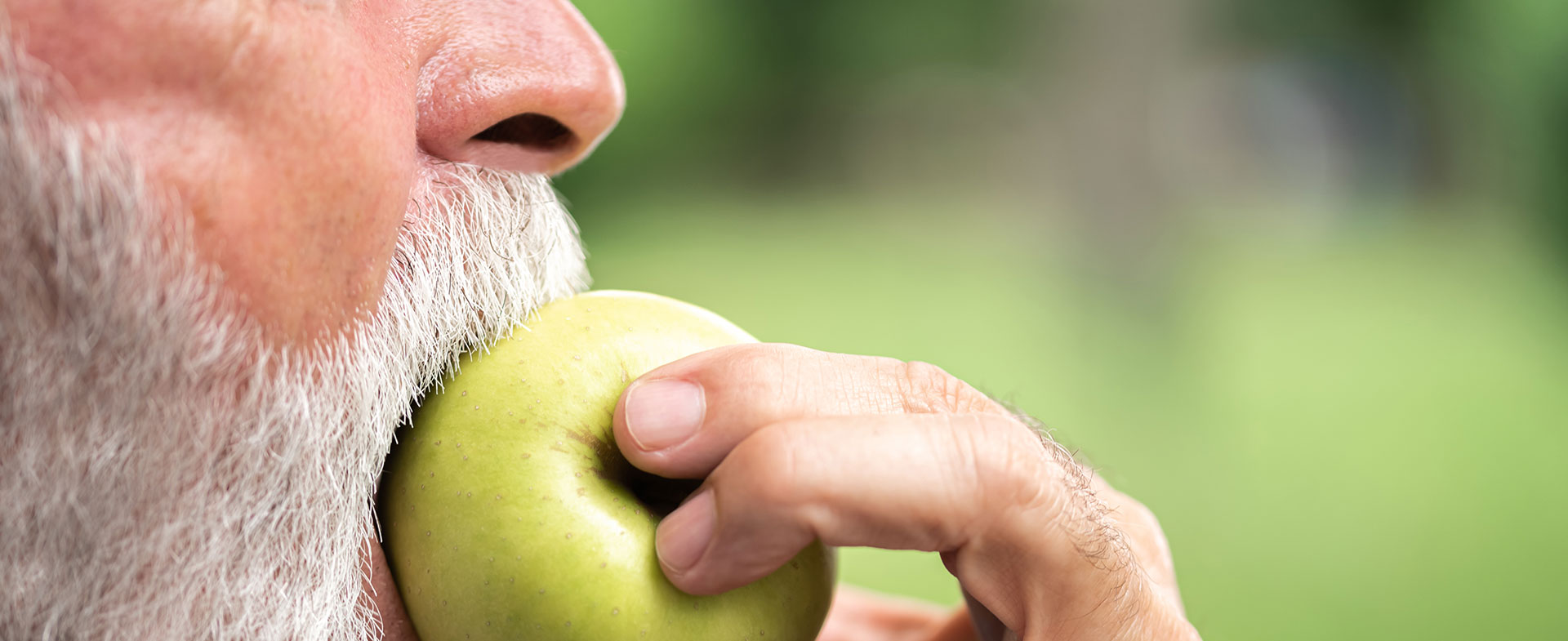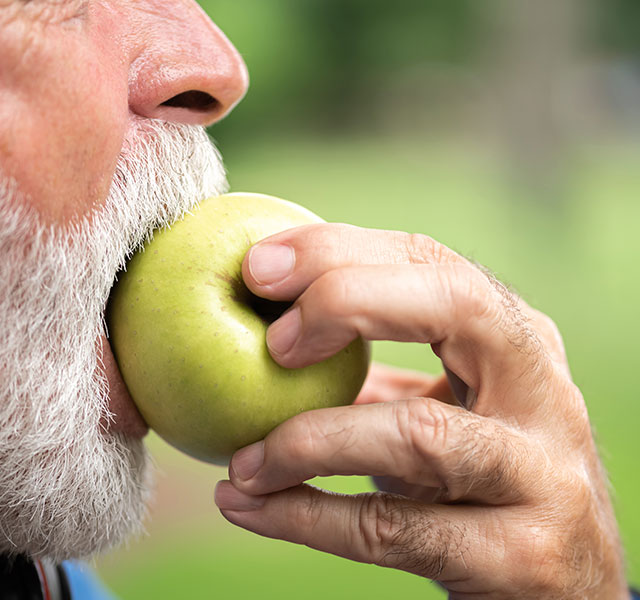While you might know that chemotherapy and radiation can cause side effects such as nausea and fatigue, you might not know they can also cause you to lose your sense of smell and taste.
“It doesn’t happen to everyone,” says Haythem Ali, M.D., a medical oncologist with Henry Ford Cancer. “It’s more likely to occur in cases when aggressive treatments must be used and when certain drugs that affect the nervous system are used, as smell and taste are part of the nervous system. When using targeted treatments to treat head and neck cancers, the loss of smell and taste is also more likely. Especially so if you’re combining chemotherapy with radiation.”
Why Chemo And Radiation Affect Smell And Taste
Taste buds and smell receptors have some renewable cell tissue, and chemotherapy and radiation work by stopping cell renewal.
“That’s why we do these treatments—because they limit the growth of abnormal cells,” says Dr. Ali. “When you’re fighting cancer, this works really well to prevent tumors from growing. But normal tissue can also be affected, and that’s what leads to side effects like loss of smell and taste. Since taste buds and smell receptor cells are not dividing during treatment, you can’t renew them and so you lose them."
How Chemo And Radiation Affect Smell And Taste
We perceive five different types of flavor: sweet, sour, salty, bitter and savory. Usually, we taste a mixture of all these flavors, but when taste receptors have been altered (due to chemotherapy and/or radiation) the ability to perceive certain flavors is lost.
“The balance is thrown off, so it might seem like other flavors are getting stronger,” says Dr. Ali. “Typically, the bitter taste receptor is more resistant to chemo than the others, so patients feel like a lot of food tastes bitter. The tastes of sweet and sour are weakening, so the bitter taste comes through more. Salt is another flavor that’s more resistant to treatment, so patients will often crave chips—they say it’s the only thing that tastes normal.”
Smell is affected in the same way, he adds. Either you may not smell certain things that other people can, or you become highly sensitive to certain smells.
What You Can Do About It
While these side effects are not permanent—it takes around three to six months for smell and taste to recover after completing treatment—they can be unpleasant to experience. Dr. Ali shares five ways to counteract this:
- Have fun with herbs and spices. “Generally, you don’t lose your sense of smell and taste altogether—it’s a weakening sense of smell and taste,” he says. “I tell my patients to make their food a little louder by adding more spices or herbs so that meals are more aromatic and have more flavor.”
- Disguise the taste and texture of meat. Marinate it in lemon, fruit juice or Italian salad dressing. Then sneak it into a casserole or a stir fry with chopped veggies.
- Add sautéed fruit to sweeten meals. Try combinations like: pineapple with chicken, veggies and soy sauce; apples with turkey, celery, poultry seasoning and onion salt; or pears with salmon, dill weed and soy sauce.
- Drink lots of water. “Chemotherapy causes your mouth to be dry,” says Dr. Ali. “When your mouth is dry, your sense of taste becomes dull because taste-generating particles aren’t able to dissolve in order to get to the taste sensors.” Whenever you’re eating, make sure to hydrate your mouth with water or artificial saliva.
- Use fragrance-free products and avoid smells and scents that are too potent for you. Switching to scent-free products and avoiding smells that are unpleasant can make this altered sense of smell seem more neutral.
At Henry Ford’s new cancer pavilion, the first-floor marketplace caters to the needs of patients undergoing cancer treatment. A scent absorber contains smells so they don’t waft throughout the building, and a broad range of food is offered, including hot entrées, gourmet beverages, fresh produce, and gluten-free and vegan options. Learn more about the new cancer pavilion.
To make an appointment with a cancer specialist, visit henryford.com/cancer or call 1-888-777-4167.
Haythem Ali, M.D., is a medical oncologist who sees patients at Henry Ford Cancer in Brownstown and Henry Ford Cancer in Detroit.



